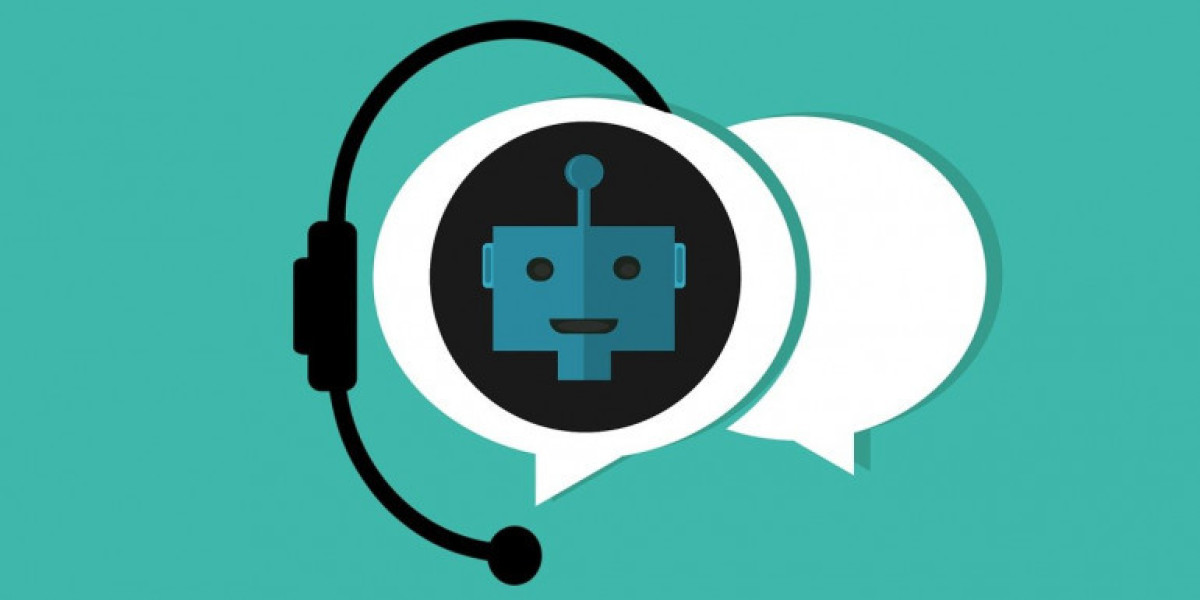In recent years, chatbots have emerged as a transformative technology in the world of customer service and support. These artificial intelligence-driven tools have the potential to revolutionize how businesses interact with their customers. With their ability to automate tasks, provide quick responses, and offer 24/7 availability, chatbots are becoming an integral part of modern customer service strategies. In this article, we will explore the rise of chatbots and their evolving role in customer service and support.
The Evolution of Customer Service
Before delving into the role of chatbots, it's essential to understand how customer service has evolved over the years. Traditionally, customer support involved human agents providing assistance over the phone, via email, or in person. While human agents bring a personal touch to interactions, they are limited by factors such as working hours, response times, and the potential for human error. As businesses expanded and globalized, these limitations became increasingly evident.
The advent of the internet and e-commerce led to a new wave of customer service methods, including email support and live chat. These methods improved the speed of communication but still depended on human agents. While effective, they struggled to keep up with the increasing volume of customer inquiries, especially during peak periods.
This is where chatbots come into play. Chatbots, powered by artificial intelligence (AI) and natural language processing (NLP) technologies, offer an innovative solution to the challenges of modern customer service.
The Rise of Chatbots
Chatbots have been on the rise for several reasons, including technological advancements, changing consumer preferences, and cost-saving opportunities. Here are some key factors contributing to their ascent:
1. Advancements in AI and NLP: Breakthroughs in artificial intelligence and natural language processing have made chatbots more intelligent and capable of understanding and responding to human language. They can hold more natural and context-aware conversations with customers.
2. Changing Customer Expectations: Customers increasingly expect quick and convenient service. They want answers to their questions and solutions to their problems at their convenience. Chatbots provide 24/7 availability and instant responses, meeting these expectations.
3. Cost Savings: Businesses are always seeking ways to reduce operational costs while maintaining or improving service quality. Chatbots provide a cost-effective solution by automating routine tasks, allowing human agents to focus on more complex issues.
4. Scalability: Chatbots can scale easily to handle a high volume of customer inquiries. This scalability is vital for businesses with seasonal fluctuations in customer demand, as chatbots can handle peak loads efficiently.
5. Data Insights: Chatbots can gather valuable customer data, helping businesses understand customer needs, preferences, and pain points. This data-driven approach can inform product development, marketing strategies, and overall business decisions.
The Role of Chatbots in Customer Service and Support
Chatbots play a multifaceted role in customer service and support. They have evolved beyond being mere automation tools to become integral components of customer interaction strategies. Let's explore the various roles they fulfill:
1. 24/7 Availability: One of the most significant advantages of chatbots is their ability to provide around-the-clock service. In a globalized world, where customers might reside in different time zones, having a chatbot available at all hours ensures that they can receive immediate assistance.
2. Efficiency: Chatbots excel in handling multiple customer inquiries simultaneously. This multitasking ability reduces wait times and improves response times. With automated responses and quick issue resolution, they enhance overall operational efficiency.
3. Cost-Effective Support: Chatbots offer a cost-effective solution for businesses. They can handle a high volume of inquiries without the need for an extensive human agent workforce. This results in reduced labor costs and increased operational efficiency.
4. Consistency: Chatbots provide consistent responses, ensuring that every customer receives the same level of service. They don't get tired, frustrated, or distracted, which reduces the risk of human errors and maintains service quality.
5. Data Collection and Analysis: Chatbots gather valuable data on customer interactions. This data can be analyzed to identify trends, customer preferences, and areas where the business can improve its products or services. It can also help in personalizing interactions with customers.
6. Self-Service Support: Chatbots empower customers to find answers and solutions independently. This self-service aspect not only improves the customer experience but also reduces the workload on human agents, allowing them to focus on more complex issues.
7. Scalability: Chatbots can efficiently scale to meet increasing customer demand. During peak periods, such as product launches or holiday sales, they can handle a surge in inquiries without sacrificing response times.
8. Emergency Support: In critical situations or emergencies, chatbots can provide immediate assistance. Customers can get essential information or support even outside of regular business hours, making chatbots a valuable resource in such scenarios.
9. Tiered Support: Chatbots can effectively triage inquiries. They handle routine and straightforward issues while escalating more complex or sensitive matters to human agents. This tiered support approach optimizes the allocation of resources and ensures that critical issues receive human attention.
The Future of Chatbots in Customer Service and Support
The role of chatbots in customer service and support is continually evolving. As technology advances and customer expectations change, chatbots will likely become even more sophisticated and integrated into the customer service ecosystem. Here are some anticipated developments in the future of chatbots:
1. Enhanced Natural Language Processing: Chatbots will continue to improve their language understanding and generation capabilities, making interactions even more natural and context-aware. This will enable them to handle a wider range of inquiries effectively.
2. Emotional Intelligence: Future chatbots may incorporate emotional intelligence features, allowing them to detect and respond to customer emotions. This can be particularly valuable in scenarios where empathy and understanding are essential.
3. Omnichannel Integration: Chatbots will become more seamlessly integrated into omnichannel customer support strategies, working alongside other support channels like email, phone, and social media.
4. Advanced Personalization: Chatbots will leverage customer data to provide highly personalized recommendations and solutions. They will be capable of tailoring interactions to each customer's specific needs and preferences.
5. AI-Enhanced Human Agents: In the future, chatbots will complement the work of human agents by providing real-time information and insights, allowing agents to offer more informed assistance. This collaboration will lead to more efficient and effective support.
6. Industry-Specific Chatbots: Chatbots will become more specialized in various industries, providing industry-specific knowledge and assistance. For instance, healthcare chatbots will have in-depth medical knowledge, while finance chatbots will excel in financial advice.
7. Privacy and Security Enhancements: As the importance of data privacy and security grows, chatbots will adopt more robust privacy features to protect sensitive customer information.
The rise of chatbots and their evolving role in customer service and support is a reflection of the changing landscape of customer interactions. These AI-driven tools offer numerous benefits, including 24/7 availability, improved efficiency, cost-effectiveness, and data-driven insights. While chatbots are not a replacement for human agents, they complement their work and enable businesses to provide better and more responsive customer support.
As technology continues to advance, chatbots will become even more capable, offering enhanced natural language understanding, emotional intelligence, and industry-specific expertise. The future of customer service and support is likely to be a harmonious blend of human and artificial intelligence, with chatbots playing a pivotal role in delivering exceptional customer experiences. Businesses that invest in chatbot technology and use it strategically will be well-positioned to meet the evolving needs and expectations of their customers.








